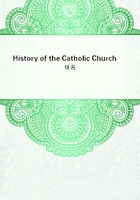
第281章
According to the Loftus manuscripts the Parliament was dissolved "by reason of [its] aversion to the Protestant religion, and their ecclesiastical government." "At the very beginning of this Parliament," according to another distinguished authority, "Her Majesty's well wishers found that most of the nobility and Commons were divided in opinion about the ecclesiastical government, which caused the Earl of Sussex to dissolve them, and to go over to England to consult Her Majesty about the affairs of this kingdom."[27] This latter statement is confirmed by the fact that the Earl of Sussex certainly left Ireland in February 1560. And yet, according to the accounts that have come down to us, it was this assembly that gave Protestantism its first legal sanction in Ireland. It abolished papal supremacy, restored to the queen the full exercise of spiritual jurisdiction as enjoyed by Henry VIII. and Edward VI., enjoined on all persons holding ecclesiastical or secular offices the oath of royal supremacy under pain of deprivation, imposed the penalty of forfeiture of all goods for the first offence on those who spoke in favour of the Pope, the punishment laid down for /praemunire/ in case of a second such offence, and death for the third offence, and enjoined the use of the Book of Common Prayer in all the churches of the kingdom. Any clergyman who refused to follow the prescribed form of worship was liable to forfeit one year's revenue and to be sent to prison for the first offence, to total deprivation and imprisonment at will for the second, and for the third to perpetual imprisonment. The laity were obliged to attend the service under threat of excommunication and of a fine of twelve pence to be levied off their goods and chattels by the church-wardens. The First Fruits were restored to the crown, and the formality of canonical election of bishops was abolished. For the future in case of a vacancy the right of appointment was vested directly in the sovereign.[28]
In view of the fact that the cities and counties from which the members were returned resisted stubbornly the introduction of the English service, that most of the lay peers clung tenaciously to the Mass, some of them, like the Earl of Kildare, being charged with this crime a few months after the dissolution of Parliament, and that the bishops with one or two exceptions, opposed the change, the wonder is how such measures could have received the sanction of Parliament.
According to a well-supported tradition they reached the statute book only by fraud, having been rushed through on a holiday, on which most of the members thought that no session would be held. Later on, when objection was taken to such a method, the Deputy, it is said, silenced the resisters by assuring them that they were mere formalities which must remain a dead letter.[29]
It is sometimes said that the Irish bishops of the period acknowledged Elizabeth's title of "supreme governor in spirituals," and abandoned the Mass for the Book of Common Prayer. Nothing, however, could be farther from the truth. With the single exception of Curwen, from whom nothing better could have been expected considering his past variations, it cannot be proved for certain that any of the bishops proved disloyal to their trust. There is some ground for suspicion in case of Christopher Bodkin of Tuam and Thomas O'Fihil, both of whom were represented as having taken the oath, but the strong recommendation of the former to the Holy See by the Jesuit, Father David Wolf, and the fact that the latter is consistently passed over by contemporary writers in their enumeration of the Protestant bishops, show clearly that their lapse, if lapse there might have been, was more or less involuntary. The fact that some of the bishops, as for example Roland Fitzgerald of Cashel, Lacy of Limerick, Walsh of Waterford, De Burgo of Clonfert, Devereux of Ferns, O'Fihil of Leighlin, and Bodkin of Tuam, were appointed on government commissions does not prove that they had ceased to be Catholics, just as the appointment of Browne on a similar commission during the reign of Queen Mary[30] does not prove that he had ceased to be a Protestant.
That the Irish bishops remained true to the faith is clear from some of the official papers of the period. In 1564 two of the commissioners, who had been appointed to enforce the Acts of Royal Supremacy and Uniformity of Worship, reported that there were only two worthy bishops in Ireland, namely, Adam Loftus, who had been intruded into Armagh but who dare not visit his diocese, and Brady, who had been appointed by the queen to Meath. "The rest of the bishops," they say, "are all Irish, we need say no more." In the following year it was announced that Curwen of Dublin, Loftus, and Brady were the only bishops zealous "in setting forth God's glory and the true Christian religion"; and in 1566 Sir Henry Sidney reported that, with the exception of Loftus and Brady, he found none others "willing to reform their clergy, or to teach any wholesome doctrine, or to serve their country or common-wealth as magistrates."[31] In a document[32] drawn up by one of Cecil's spies in 1571 the bishops of the province of Armagh, Cashel, and Tuam are all described as /Catholici et Confoederati/, while in the province of Dublin, Loftus, Daly, Cavenagh, and Gafney, the three latter of whom had been intruded by the queen into Kildare, Leighlin, and Ossory, are described as Protestants, as is also Devereux of Ferns, about whose orthodoxy there may be some doubt, though unfortunately there can be very little about his evil life.